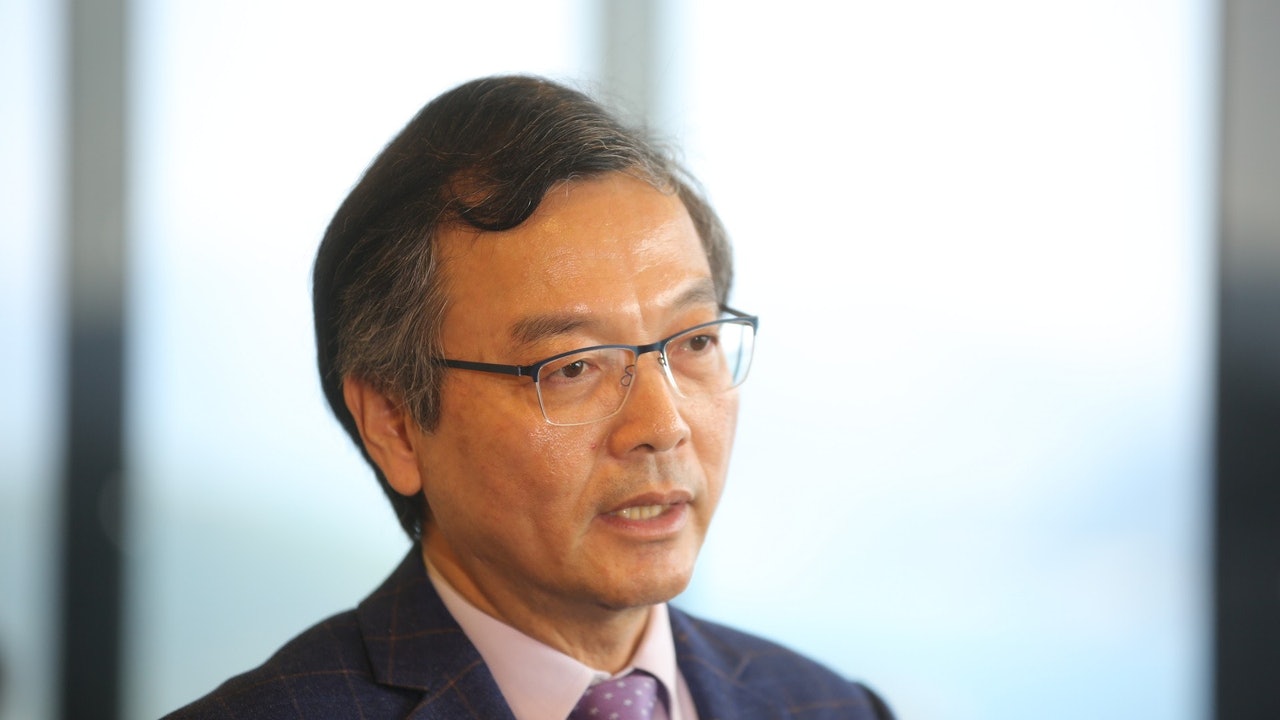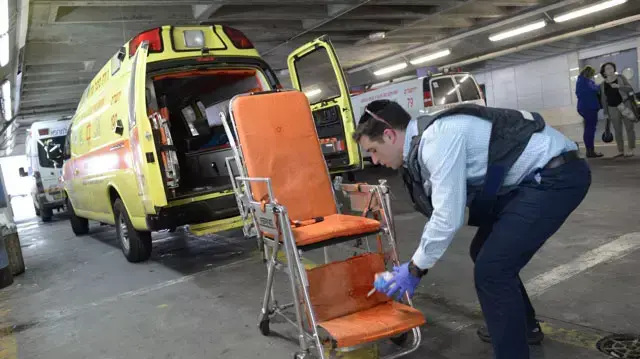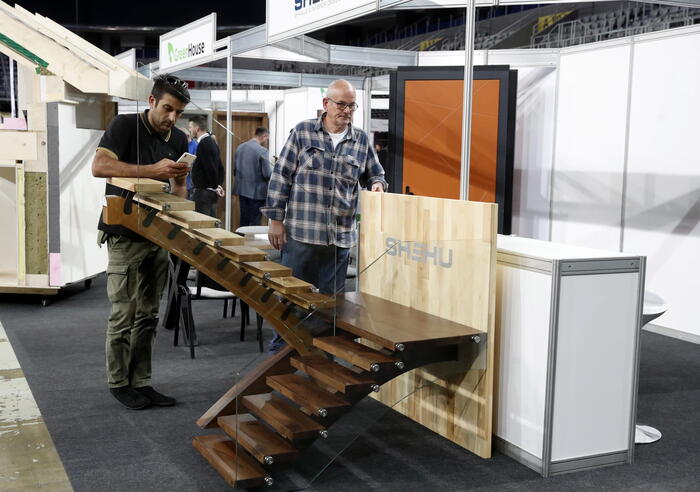According to the latest instructions from the Hospital Authority, the 14-day quarantine period in the hospital was changed to seven days for the confirmed residents of RCHEs, and then they were sent back to the RCHEs for the remaining seven days of isolation.
The Chairman of the Elderly Commission, Dr. Lam Ching Choi, issued a statement today (19th), calling on the staff of the residential care home to work together in the fight against the epidemic.
He also stated that he had received the commitment of the Hong Kong Council of Social Service to assist in distributing the relevant equipment to the institutions in need in the future.
The Hong Kong Council of Social Service stated that the industry understands that the current public hospitals are overloaded, but the institutions are also on the verge of collapse, and they should cooperate with each other to deal with the epidemic.
▼On February 16, a tent was set up in the parking lot of Princess Margaret Hospital to allow patients to wait▼
+2
Lin Zhengcai issued a statement saying that the government has taken a series of measures to support residential care homes so that residents can continue to receive appropriate care, including providing additional allowances for individual residential homes with in-situ quarantine or isolation residents to purchase personal protective equipment, provide qualified staff with additional allowances. A "Special Allowance for Residential Staff to Prevent and Fight the Epidemic" of $2,000 per person per month for a period of five months, and a guideline on the "in-situ quarantine/isolation of Residential Homes" will be issued.
He also mentioned that he is working with various sectors of the community to study how to strengthen the work of supporting institutions.
Among them, the Hong Kong Jockey Club Charities Trust has researched through the "Jockey Club Residential Anti-epidemic Facilities Subsidy Scheme" launched earlier, to provide subsidies for residential facilities with in-situ quarantine or isolation of residents to purchase facilities such as air purifiers.
In addition, the government is studying the introduction of a remote monitoring system in residential homes under quarantine or isolation to measure and monitor various health indicators of residents, such as blood oxygen saturation, pulse rate and body temperature, and give early warnings in the event of abnormal reactions .
In order to help the home to identify the elderly in need of treatment in a timely manner, and to reduce the staff's daily work of testing the residents during this extraordinary period.
The Hong Kong Council of Social Service also promised to assist in distributing the relevant equipment to the institutions in need in the future.
Cai Haiwei, chief executive of the Hong Kong Federation of Social Service, said that the industry understands that public hospitals are currently overloaded, but residential homes are also on the verge of collapse, emphasizing that some unfair accusations will not help solve the problem.
(file picture)
Cai Haiwei, chief executive of the Hong Kong Federation of Social Service, said that the industry understands that public hospitals are currently overloaded, but residential homes are also on the verge of collapse, emphasizing that some unfair accusations will not help solve the problem.
Cai pointed out that the space, the number of manpower, and the training of staff are not designed for quarantine or isolation centers. The confirmed residents continue to stay in the home, which may lead to an increased risk of infecting other residents and staff; The vaccination rate of the seniors is lower, and the chance of becoming seriously ill from infection is also higher.
The HKCSS recommends that before deciding whether an elderly person is suitable to return to a residential care home, the HA should not only assess the elderly’s own health, but also understand whether the residential home has suitable isolation and quarantine equipment and space, as well as relevant nursing staff. To carry out the necessary medical monitoring and care, etc., clearer guidelines should also be provided for elderly and disabled residential homes, and communication with institutions should be strengthened to facilitate close cooperation with each other.
▼On February 16, the open space near the A&E department of Caritas Hospital was filled with patients▼
+9
Epidemic | 30 more residential homes, more than 190 cases in total Approved to take care of the elderly with risk of transmission without guidelines, an increase of 6116 confirmed diagnoses and a new high Hospital Authority calls on residential care homes to be responsible and not refuse to pick up the elderly














